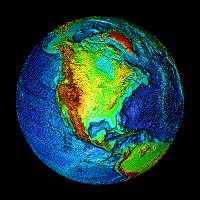Powerful Typhoons in the Philippines Leave Tens of Thousands Without Food and Drinking Water
Most of the flooding victims refuse to evacuate flooded homes fearing looters, as Philippines government considers forced evacuations
READ THIS FIRST
Continued hacking and content censorship
In view of the continued hacking and censorship of this blog by the Internet Mafia, the Moderators have decided to maintain only a minimum presence at this site, until further notice.
FIRE-EARTH will continue to update the 2011 Disaster Calendar for the benefit of its readers.
WordPress is HACKING this blog!
WordPress Continues to Hack Fire-Earth, Affiliated Blogs
The Blog Moderators Condemn in the Strongest Possible Terms the Continued Removal of Content and Hacking of FIRE-EARTH and Affiliated Blogs by WordPress!
United States of Censorship
Even Twitter Counters are disabled when Blog posts criticize Obama, or contain “forbidden phrases.” See also: Google’s Top 10 List of ‘Holy Cows’
Disaster Calendar 2011 – October 2
[October 2, 2011] Mass die-offs resulting from human impact and the planetary response to the anthropogenic assault could occur by early 2016. SYMBOLIC COUNTDOWN: 1,627 Days Left to the ‘Worst Day’ in Human History
- Luzon, Philippines. Two powerful, back-to-back typhoons have left at least 60 people dead and many missing.
- About 3 million people have been affected by the widespread flooding spawned by the storms.
- Most of the victims refuse to evacuate flooded homes fearing looters, as Philippines government considers forced evacuations.
- Large areas in many provinces have become isolated because roads are submereged under chest-high floodwater.
- “The damage bill from Typhoon Nesat stood at 6.7 billion pesos ($155 million), the disaster agency said. More than 180,000 people fled to shelters in dozens of towns north of Manila. There was no initial damage estimate for Nalgae.” Said a report.
- “We are seeing a mass exodus of people looking for food,” said the representative of World Vision’s, an international aid agency.
“Survivors have no means to cook food. They may have money but there’s just nothing to buy.”
- Flood intensity was compounded by excess water from dams, as the authorities opened the floodgates to “release water from three dams in the Agno Basin as well as in Magat Dam in Ramon, Isabela.” a report said.
- There’s strong probability that a third typhoon may hit Luzon later this week.
- Thailand. Thailand declared two provinces as disaster areas, as flooding in the Central Plain region intensified, reports said.
- The declaration covered the entire province of Ayutthaya and a large section “of Phichit province where the Lop Buri River has overflowed, leaving many riverside communities underwater.”
- Guangxi Zhuang Autonomous Region, SW China. Flooding triggered by Typhoon NESAT which slammed into the island province of Hainan two days ago, a report said.
- “Water from heavy downpours brought by Nesat has entered major river courses in the region, where more than 2 million people have been affected by the typhoon.“
- NESAT was the strongest typhoon to hit the region since 2005, forcing the evacuation of more than 130,000 people, the report quoted the authorities as saying.
- The typhoon has destroyed thousands of homes across 24 counties in Guangxi and damaged more than a quarter of million hectares of farmland.
- Algeria. Flooding in Algeria has left at least 10 people dead and two others missing, the authorities said
- Flash floods spawned by several days of torrential downpours have deluged at least two towns southwest of the capital Algiers destroying or damaging about a thousand homes.
Related Links
- NALGAE, 2nd powerful typhoon in 5 days, hits Philippines
- Typhoon NESAT Pounds Philippines, Submerges Manila
- Storms, Flooding Kill Hundreds in Asia
- 2011/2012 Could Prove the Worst Year Ever for the Philippines: FIRE-EARTH Forecast
- Up to 10 Million People Affected in Pakistan Floods
- Pakistan flood death toll tops 1,000
- Unprecedented flooding in SW China forces 300,000 to evacuate
- 2011 Disaster Calendar – September
- 2011 Much More Disastrous: FIRE-EARTH Forecast
- Global Disasters in 2011 Could Impact 1/3 to 1/2 of the Human Population (FIRE-EARTH Forecast)
- Back to the Primordial Future
- Mass Die-offs (FIRE-EARTH Forecast)
